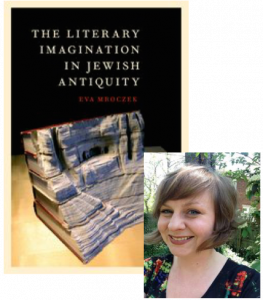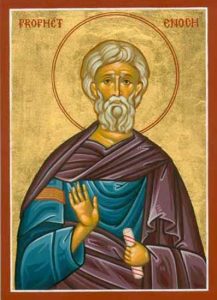 Don’t think of books. Think of open databases, literary projects, both earthly and heavenly archives. Ben Sirach, for example, becomes a generative character or figurehead from whom writings flowed like canals from a river. That’s how Eva Mroczek, Literary Imagination in Jewish Antiquity, says we should understand the way ancient Jewish scribes (Second Temple and gospel era) thought of their writings and their literary environment.
Don’t think of books. Think of open databases, literary projects, both earthly and heavenly archives. Ben Sirach, for example, becomes a generative character or figurehead from whom writings flowed like canals from a river. That’s how Eva Mroczek, Literary Imagination in Jewish Antiquity, says we should understand the way ancient Jewish scribes (Second Temple and gospel era) thought of their writings and their literary environment.
Revelation originated from the heavens and could never be grasped in all its fulness by any mortal; there was always room for more understanding and knowledge of the spiritual. There were writings that only the chosen few saints had ever seen, writings preserved in the heavens. Enoch was secreted away and continues to write until the time of the end.
A sacred writing could never be bound complete between two covers or within a single earthly scroll. There would always be room for more revelation. Of the making of books there will be no end.
An “author”, at least the inspired author, a heavenly figure perhaps, who sowed the poetry of praise or the sayings of wisdom in a mortal scribe, might spawn many varied works over time. Hence “David” could author countless psalms, only a small sample of which were ever captured for our canon. Other Davidic psalms were extant, some were composed relatively recently. They were all in a figurative sense authored by David since psalms were attributed to him as a way of fleshing out further the character and life of David. It was not so much that David’s name was attached to a psalm to impute authority to the psalm; no, it was rather that David was associated with the psalm to enrich the narrative about David, to transform David in a way to enable him to speak to a new audience. This world of attribution was not unique to the Judea’s:
In fact, such a sense of character-driven literary creativity is attested elsewhere in the ancient world, in some theories about Homer from the Hellenistic period, where the character becomes the affective centre of the poetic creation. Poetry . . . is generated from infatuation with one of the characters, who is prior to, and drives the creation of, the narrative. (p. 56)
So in the case of the Psalms of David. . .
Making psalms “Davidic” is not precisely attribution, as little evidence exists for a claim that David personally composed the psalms, but dramatisation and historicization. But this process of dramatising and historicising psalms is motivated not by the texts of the psalms themselves, but by an interest in the character who comes to animate the texts. It is the desire to reflect and elaborate on particularly compelling aspects of David’s character — David the sufferer, the penitent, the pursued — that is behind the creation of the expanded headings. Put simply, dramatising the psalms in his voice gives this David more things to say. (p. 63)
 We are not only talking about the Psalms of David and the different canonical counts of these but of the wider literary world — of writings attributed to Enoch, to Solomon, to Moses, to Abraham, to Zephaniah . . . . .
We are not only talking about the Psalms of David and the different canonical counts of these but of the wider literary world — of writings attributed to Enoch, to Solomon, to Moses, to Abraham, to Zephaniah . . . . .
In many Second Temple texts, we see an awareness of a literary world that is ancient, varied, and not fully accessible. In texts like Enoch, Jubilees, and many traditions about the patriarchs from the Dead Sea Scrolls, for instance, we see the notion of a long history of revealed writing stretching back long before Sinai, and forming part of the stories about Israel’s ancient ancestors. We see scribes recognizing the authority and divine origin of texts like the Enoch literature, Jubilees, and these patriarchal traditions, which present themselves not as derivative of or dependent on material we now call biblical, but indeed, prior to it. And while specific texts that have come down to us, like the Enochic material, are recognizably used in other literature, early Jewish texts also mention many writings that we cannot identify with any extant texts — writings that may have been lost, like the book of Noah, or were always only imagined, like the heavenly Book of Life.11 (pp. 116f.)
The authors of the scriptures (like Jubilees and the Temple Scroll) that not part of our canonical Bible did not appear to view their work as attempts to fill in the gaps or clarify and explain the canonical texts. These non-biblical texts do not present themselves as subordinate to the Pentateuch or Prophets, buy as new revelations from a divine source. Continue reading “Divine Revelation Not Limited to the “Bible Canon””
